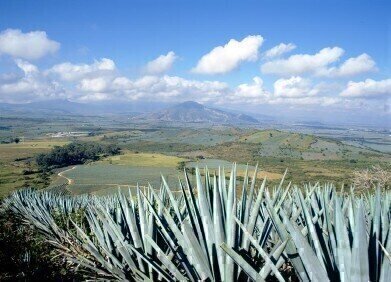Air Clean Up
Agave-Derived Biofuels Show Favourable Energy Balance and Avoid Competition with Food Production and Biodiversity
Jul 28 2011
A new report from the Smith School of Enterprise and the Environment identifies significant advantages of using agave plants, such as those used in the production of tequila and sisal, to derive biofuels. Unlike other biofuel feedstocks, agave has the potential to grow on marginal agricultural land and so would have limited impact on global food production and biodiversity.
Agaves are found to have many favourable characteristics such as high productivities, sugar content and an ability to grow in naturally water-limited environments. The report: Life cycle energy and greenhouse gas analysis for agave-derived bioethanol presents the first comprehensive life cycle analysis of the energy and greenhouse gas (GHG) balance for agave-derived ethanol.
Large-scale biofuel production, particularly in the US, has been criticised in view of mounting concerns over its associated pressure and impact on food production in already volatile global markets. It is claimed that increasing biofuel production adversely impacts water quality through excessive fertiliser use and driving undesired land-use change such as deforestation.
Ethanol derived from cellulosic feedstocks is likely to overcome some of these drawbacks in the future, but the production technology is yet to be fully commercialised. Sugarcane ethanol is the most efficient option in the short term, but its success in Brazil is difficult to replicate elsewhere.
Sir David King, Director of the Smith School of Enterprise and the Environment, said:
“We are faced with mounting concerns over our dependence on fossil fuels. The transport sector uses 60% of global oil production and has relied almost entirely on petroleum-based liquid fuels for over a century, making it arguably the most challenging sector to overcome.
Biofuels are a necessary part of the solution, but a legal framework is required so they are produced in a sustainable manner in order to contribute to the reduction of fossil energy use and GHG emissions without adverse effects on biodiversity and food supply.”
Xiaoyu Yan, Postdoctoral Researcher at the Smith School of Enterprise and the Environment, said:
“Our analysis highlights the promising opportunities for bioenergy production from agaves in arid or semi-arid regions, causing minimum pressure on food production and water resources. The results suggest that ethanol derived from agave is likely to be superior, or at least comparable, to that from corn, switchgrass and sugarcane in terms of energy and GHG balances (net GHG offset per unit land area), as well as ethanol output.”
Andrew Smith, Professor of Plant Sciences at the University of Oxford, added:
“The characteristics of the agave – high water-use efficiency, tolerance of high temperatures, and high content of soluble sugars – suit it well to bioenergy production, but also reveal its potential as a crop that is adaptable to future global warming and climate change. In a world where arable land and water resources are increasingly scarce, these are key attributes in the food vs. fuel argument, which is likely to intensify given the expected large-scale growth in biofuel production.”
Daniel Tan, Senior Lecturer at the University of Sydney, and another collaborator on the project, added:
“Agave is well adapted to large areas of the tropics and subtropics that are too arid or degraded to support food crops. The positive energy and greenhouse gas balance of agave-derived ethanol and bioenergy should provide many opportunities for agave production in semi-arid tropical regions of the world.”
Events
WEATHER • CLIMATE • WATER / EARTH OBSERVATIONS / GREEN ECONOMY
Oct 29 2024 St. Petersburg, Russia
Oct 30 2024 Hong Kong
Nov 05 2024 Toronto, Canada
Nov 06 2024 Ho Chi Minh City, Vietnam
Nov 12 2024 Valencia, Spain













